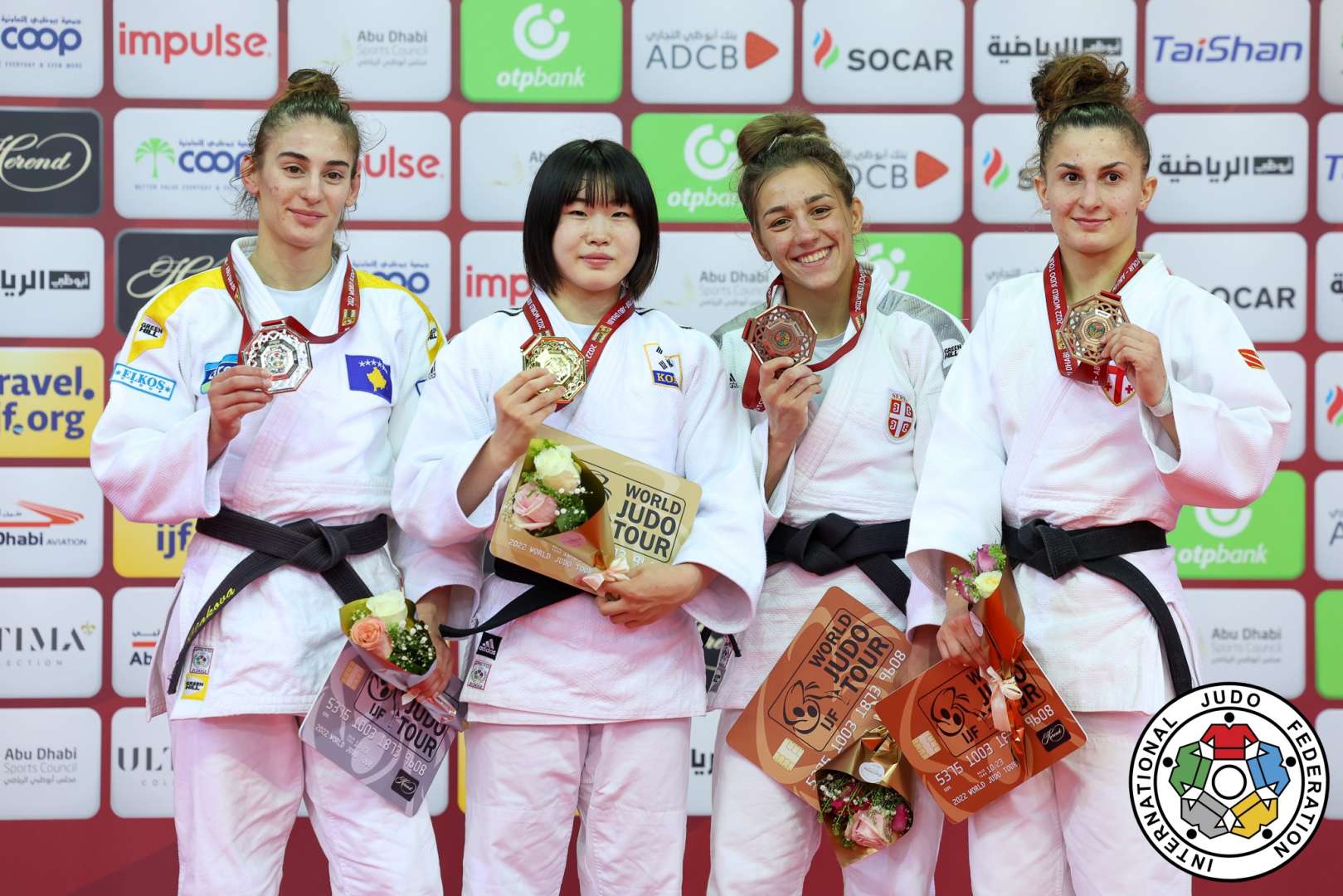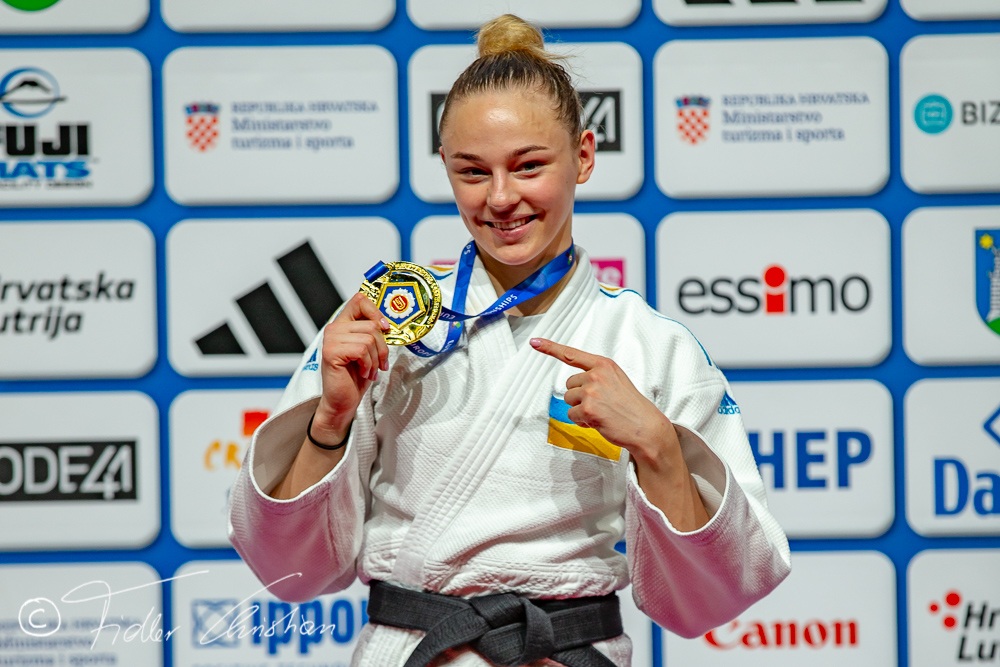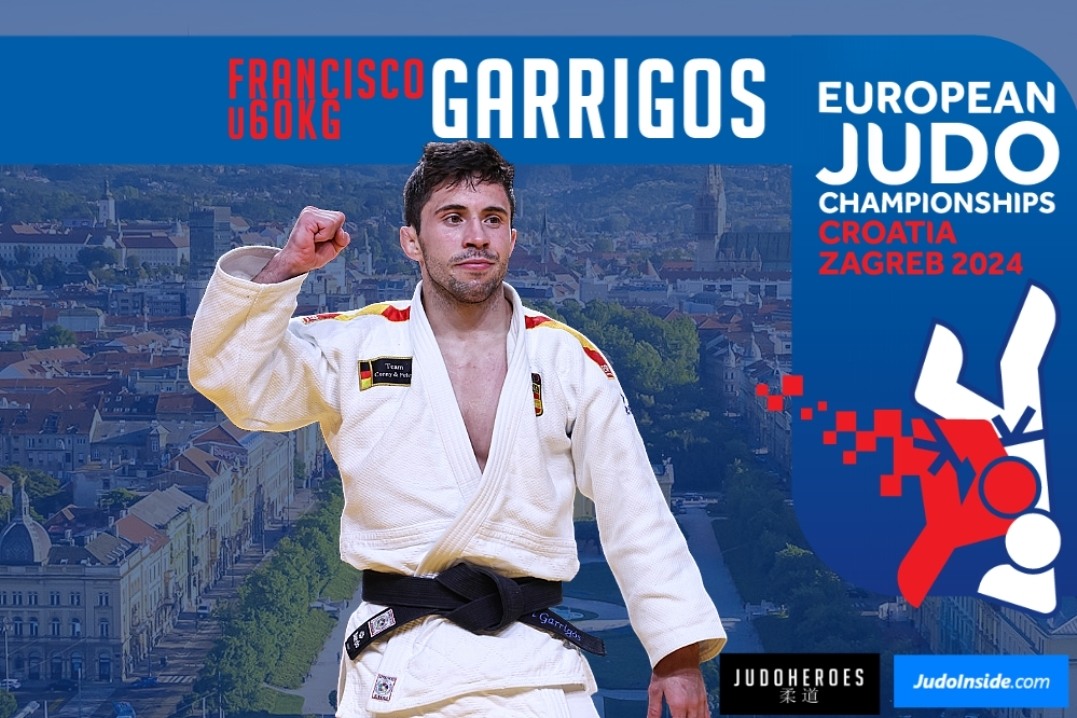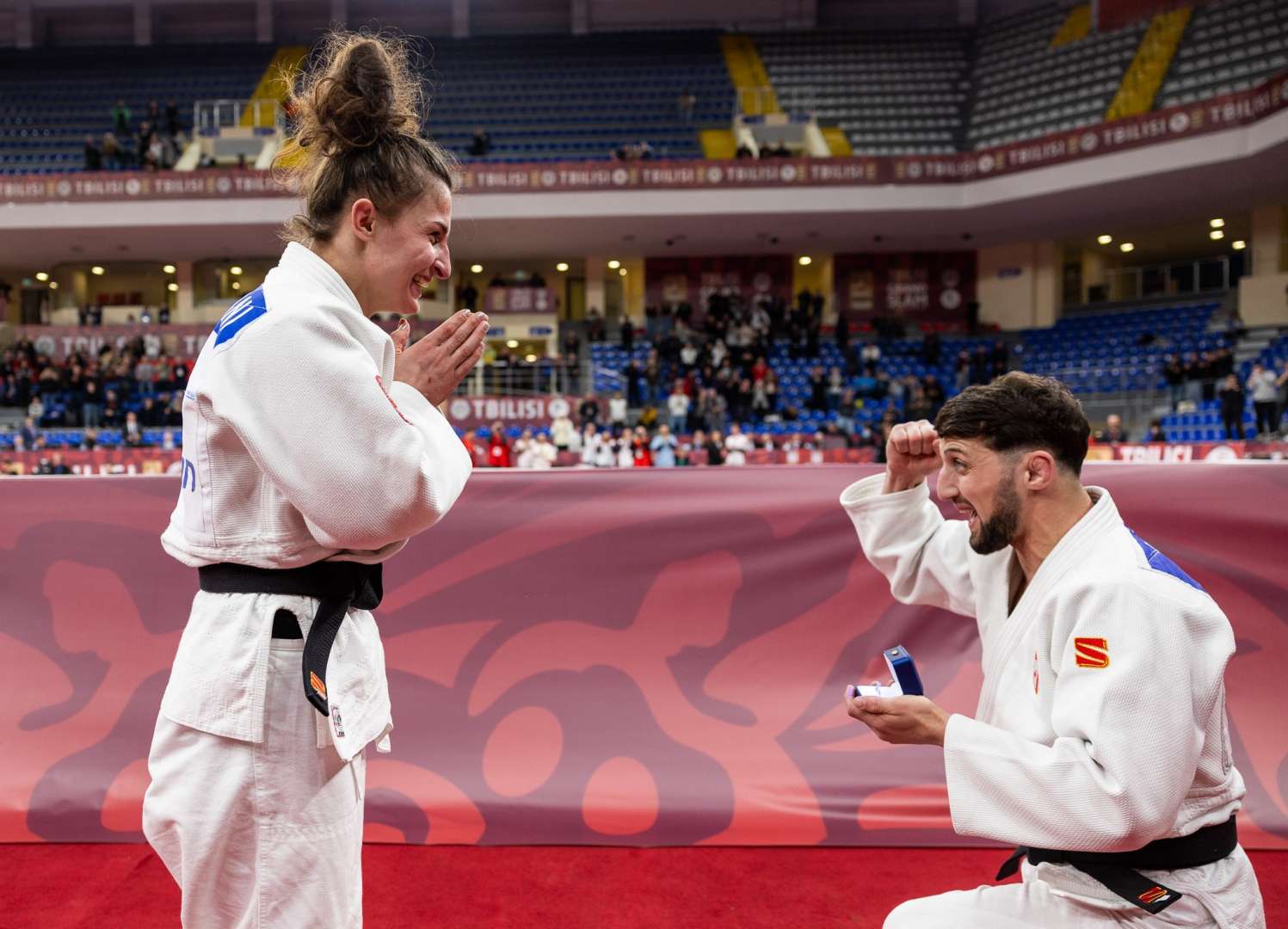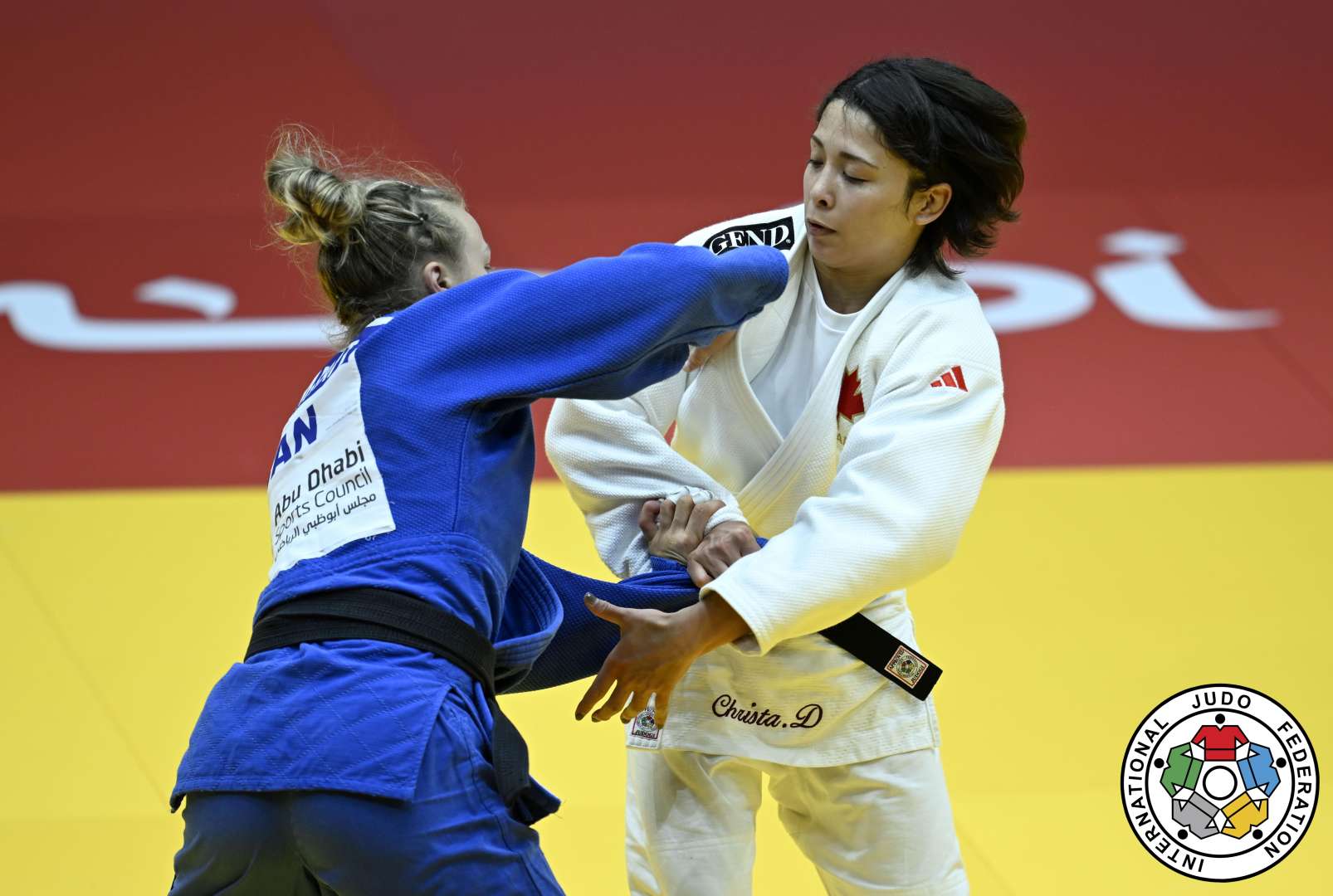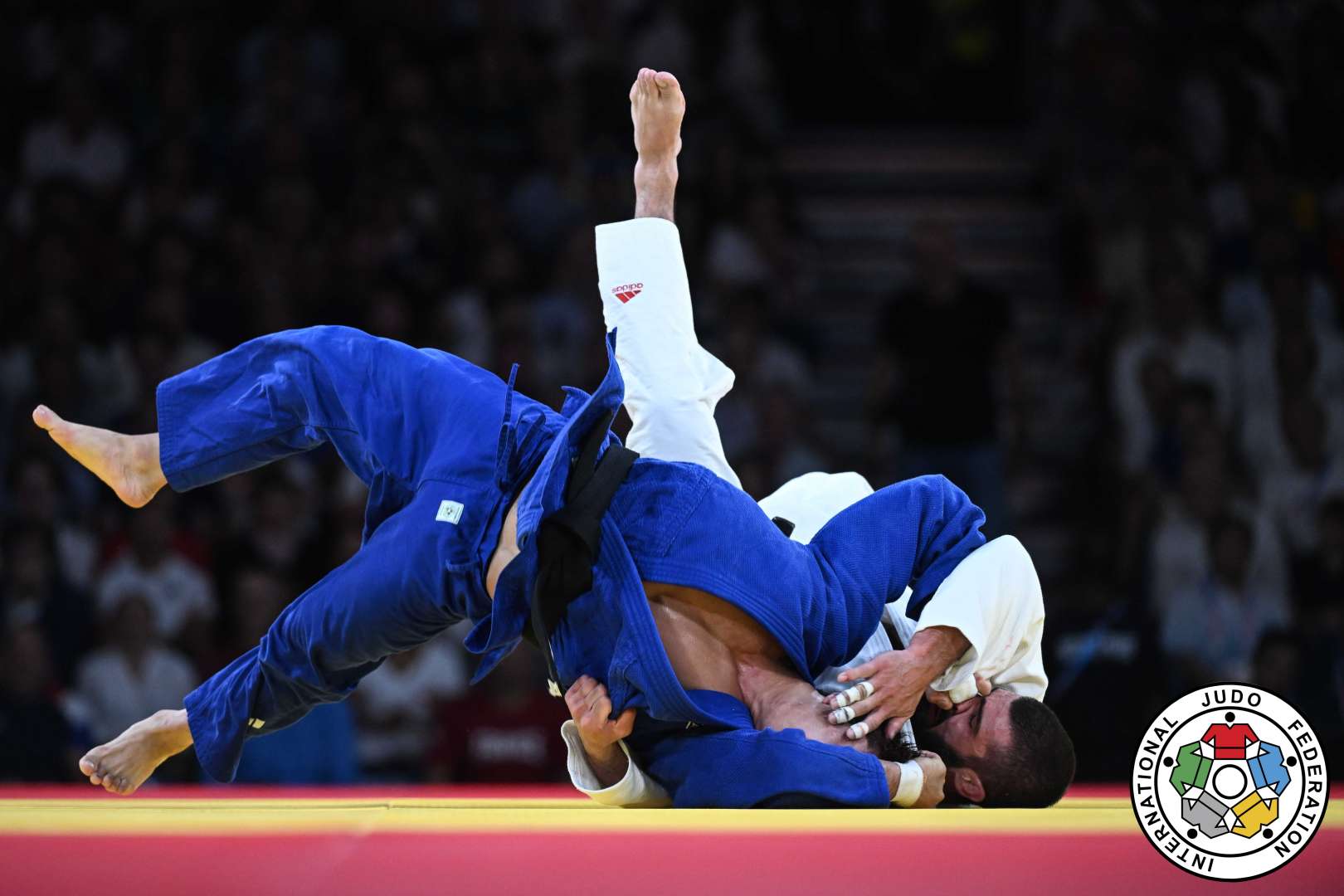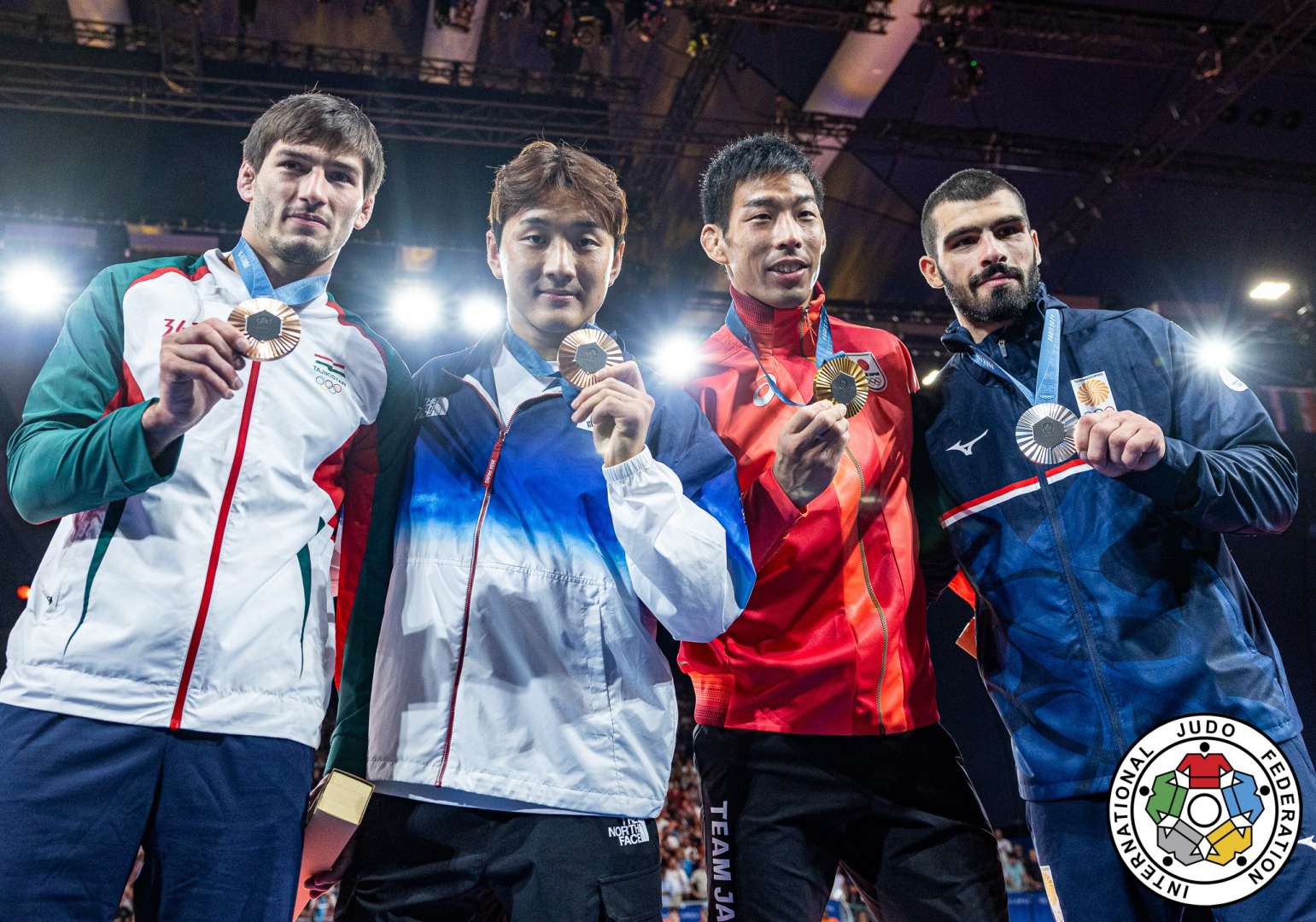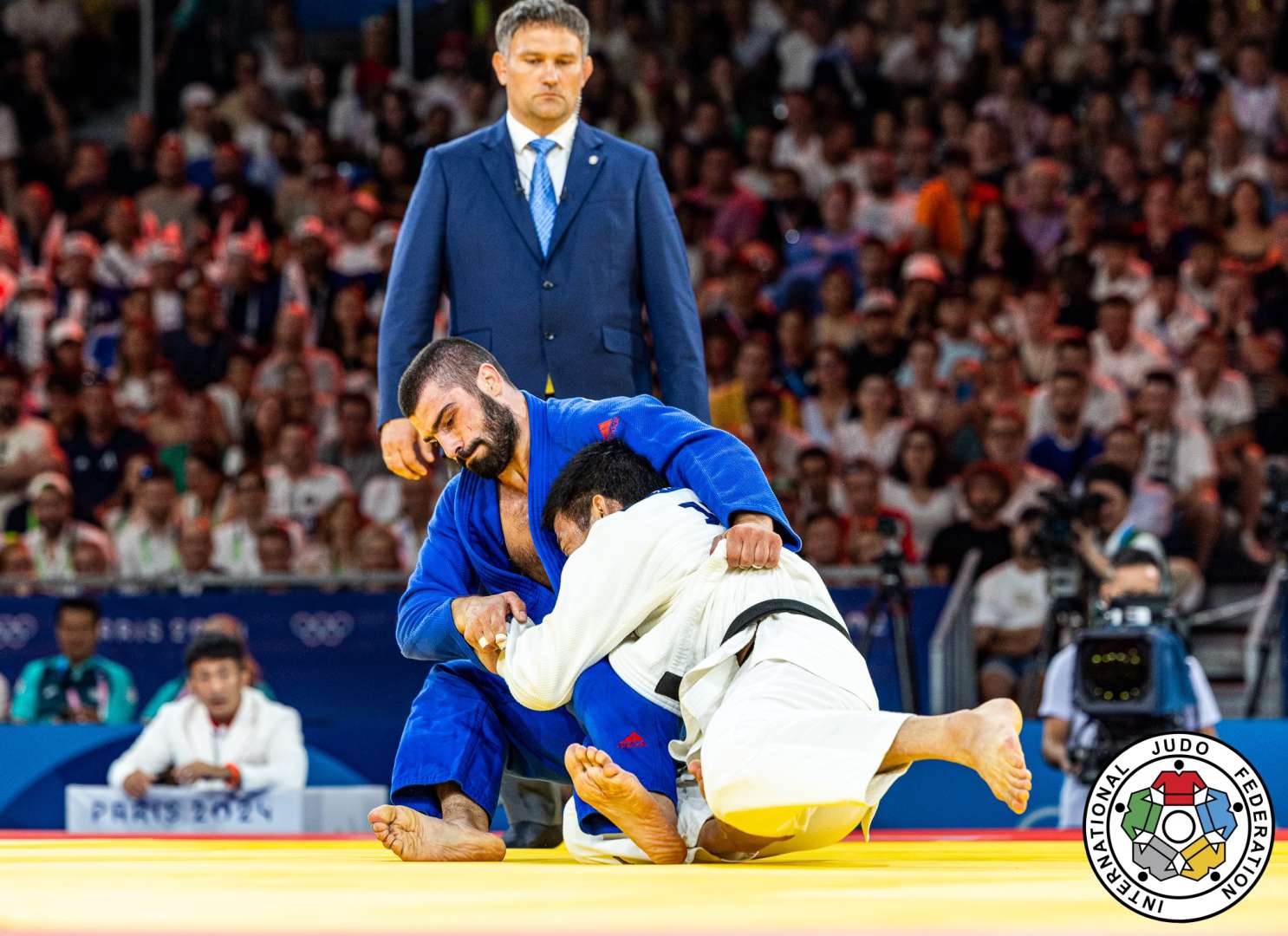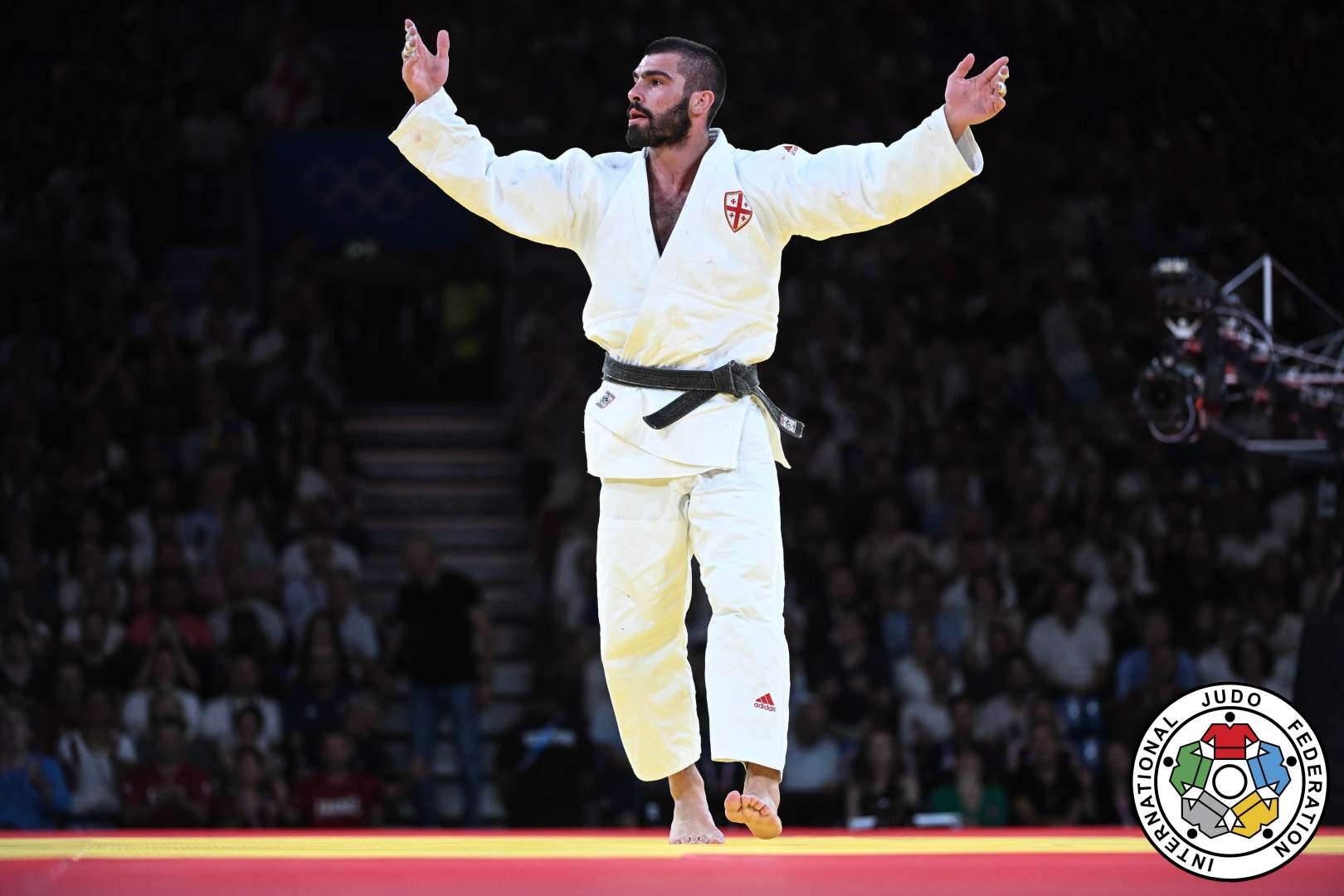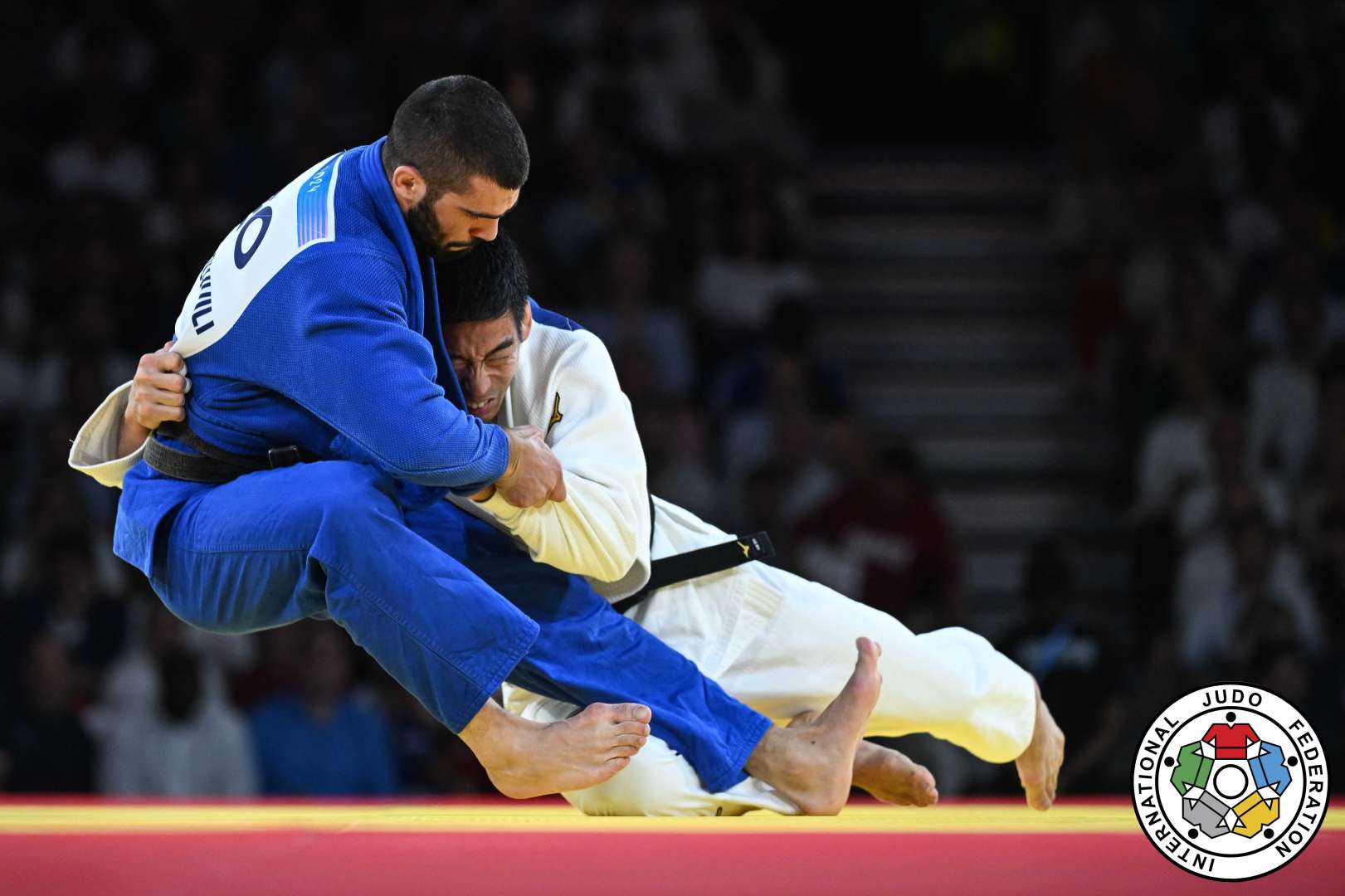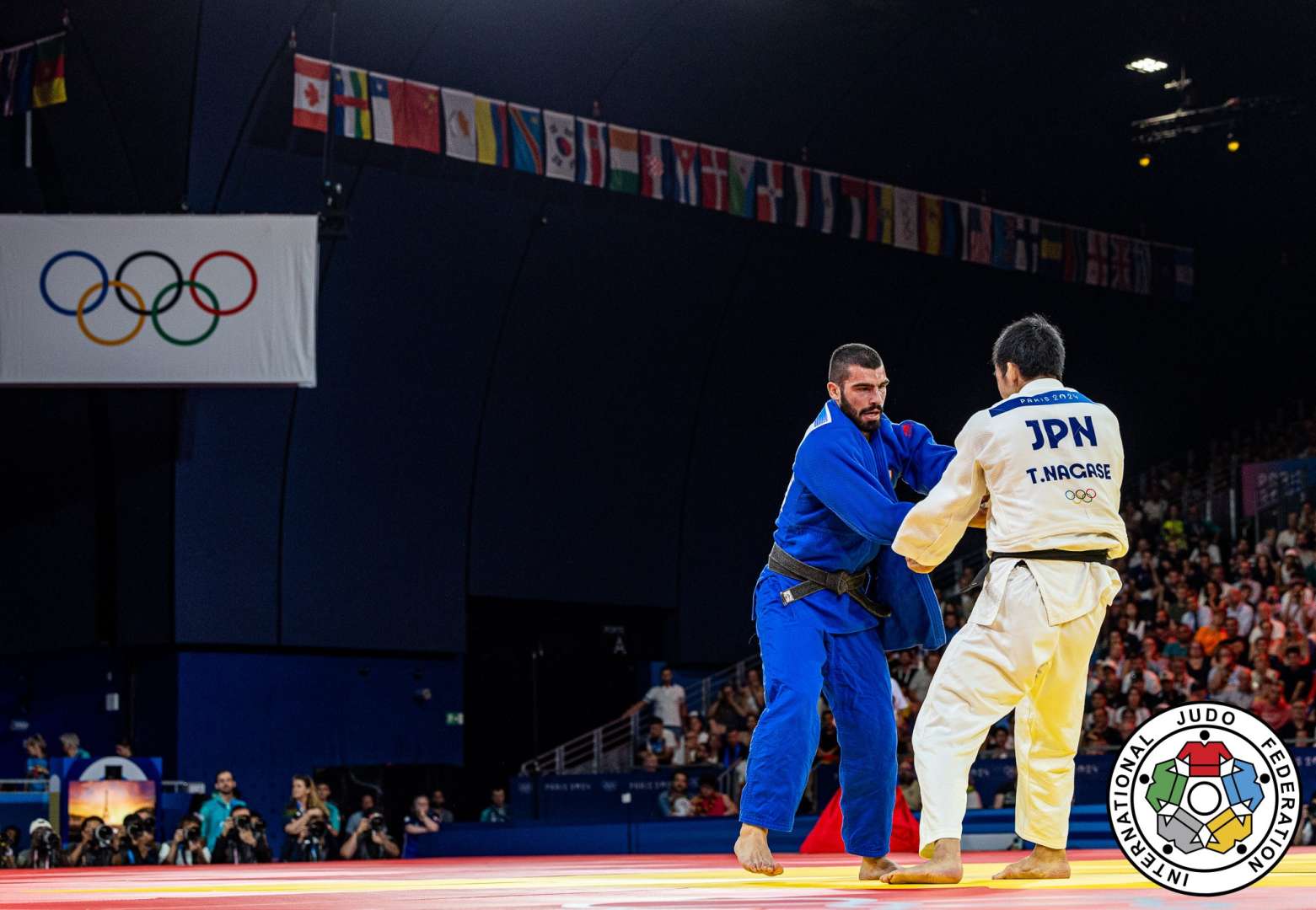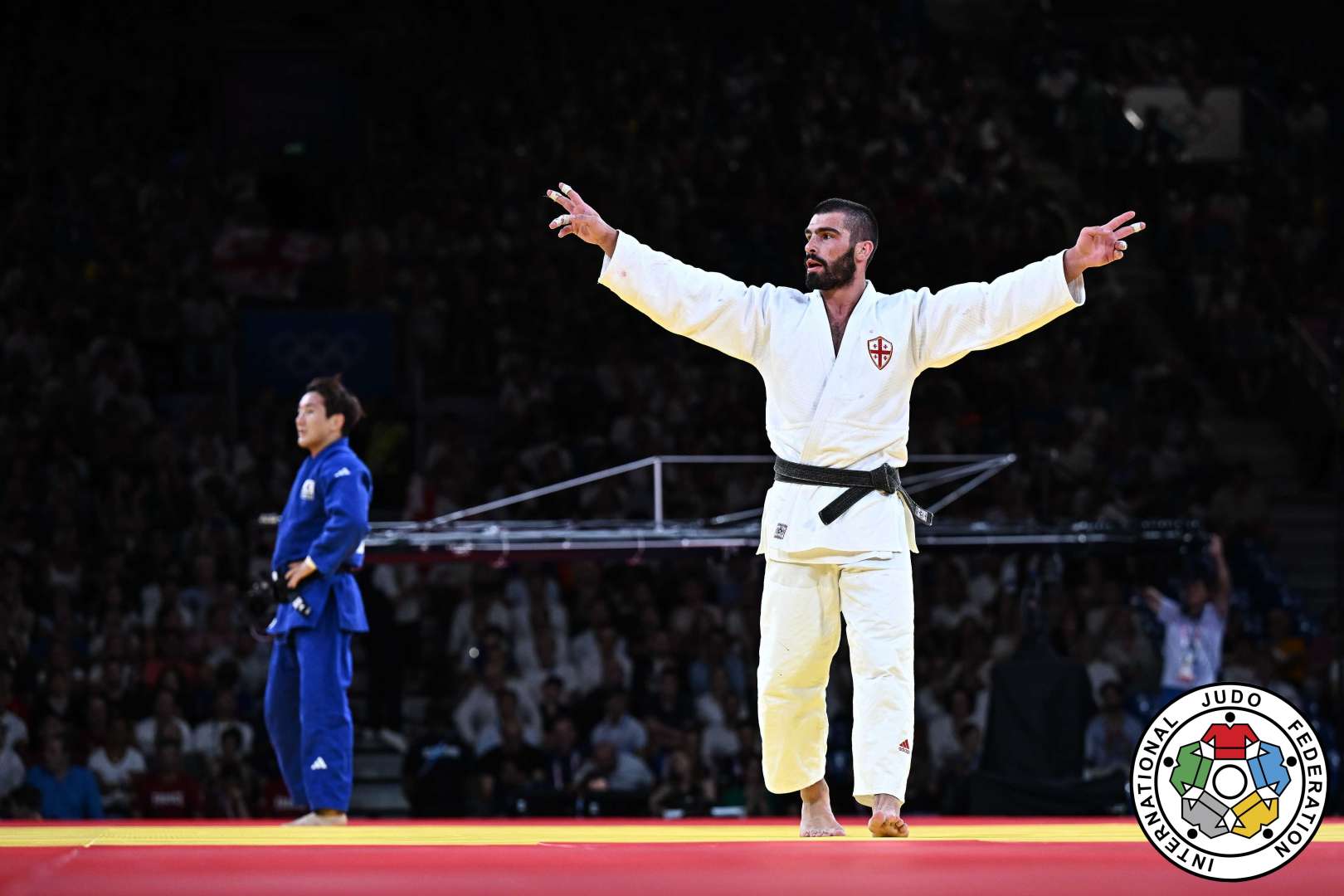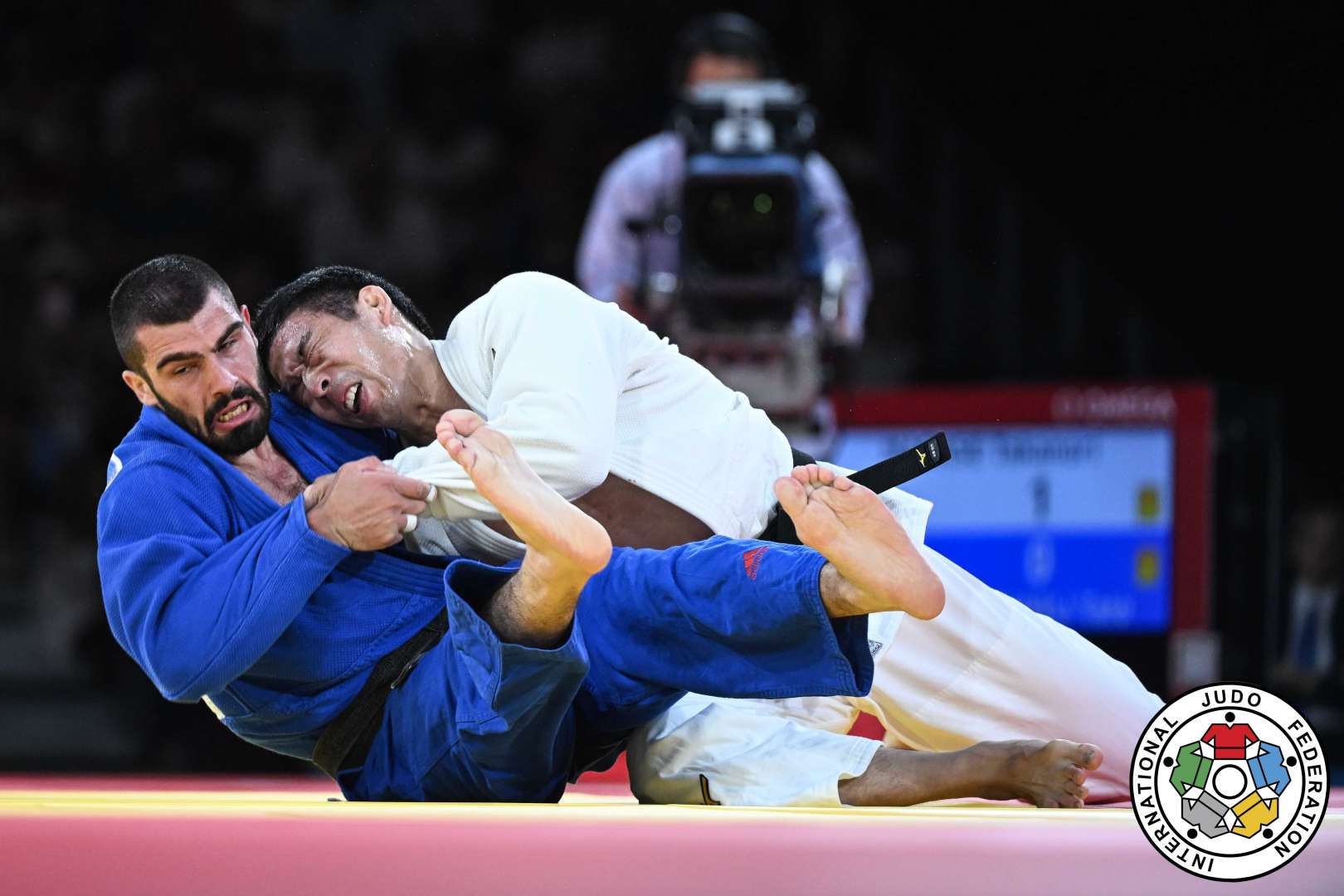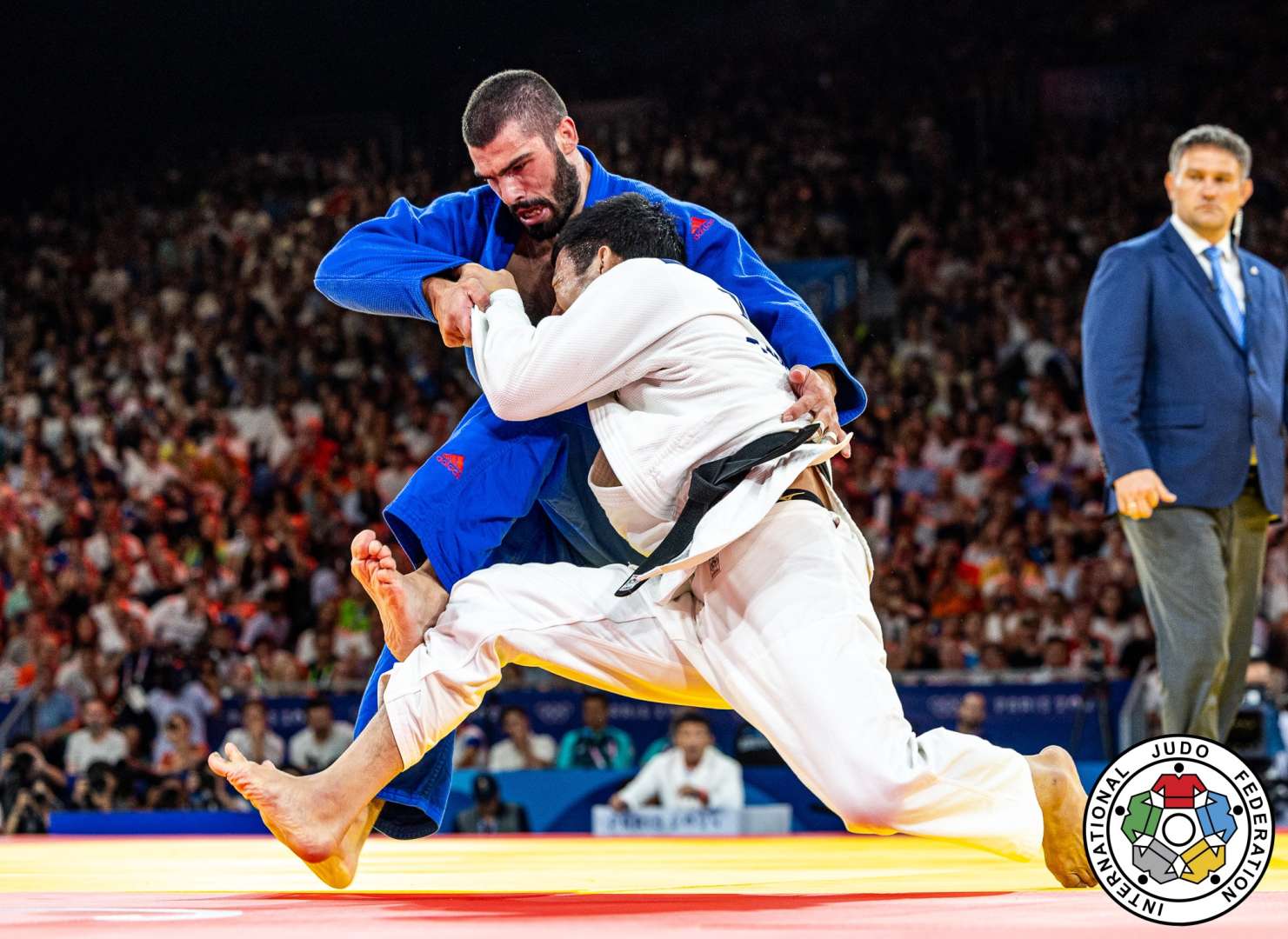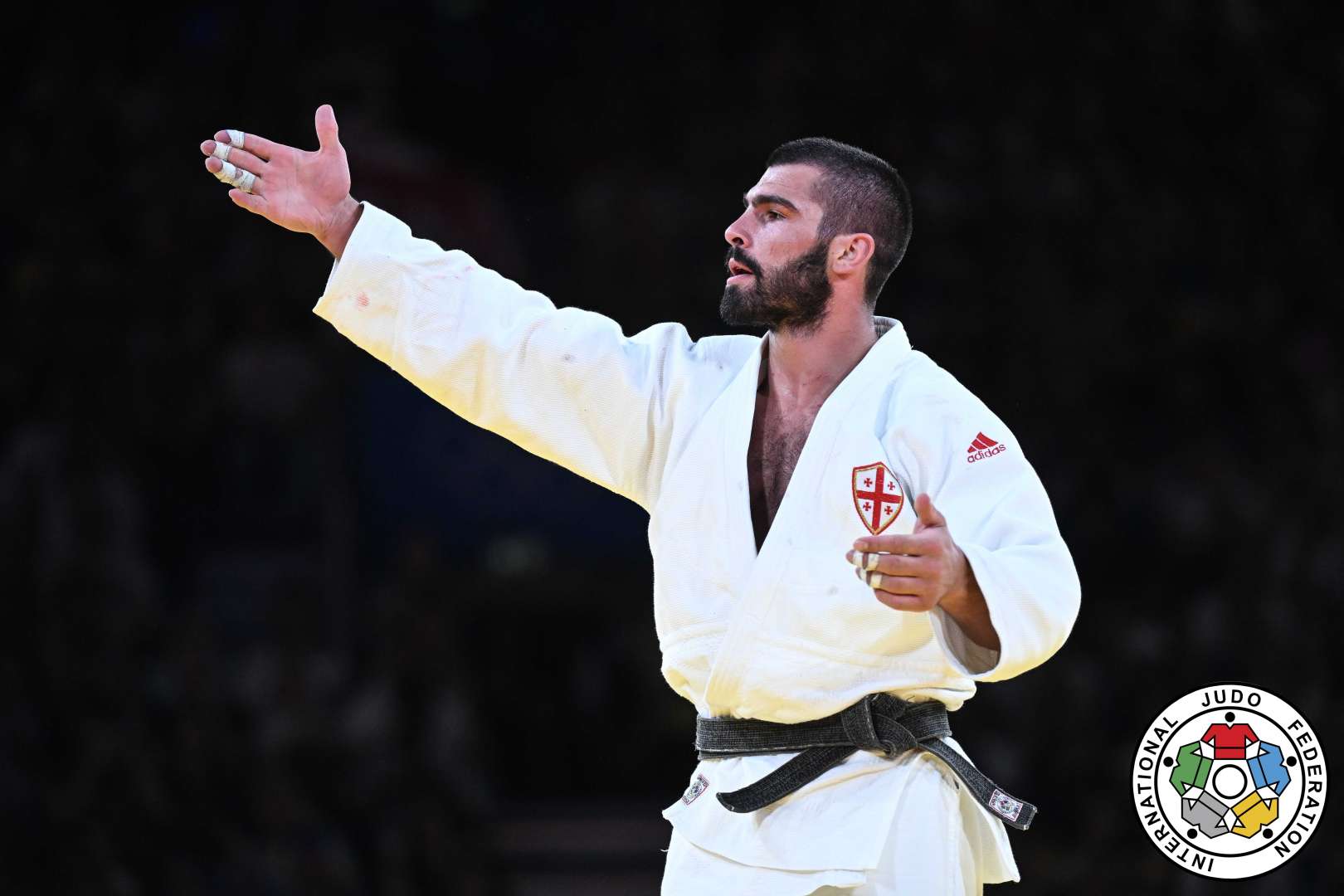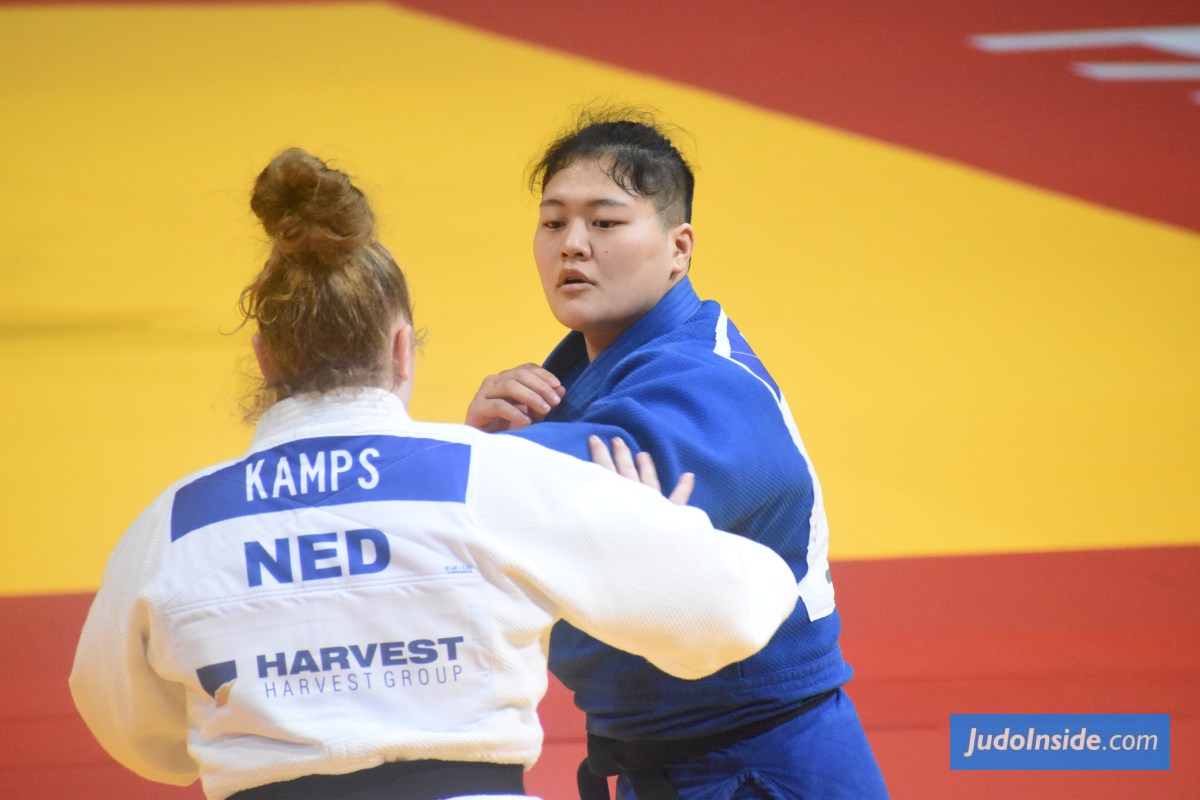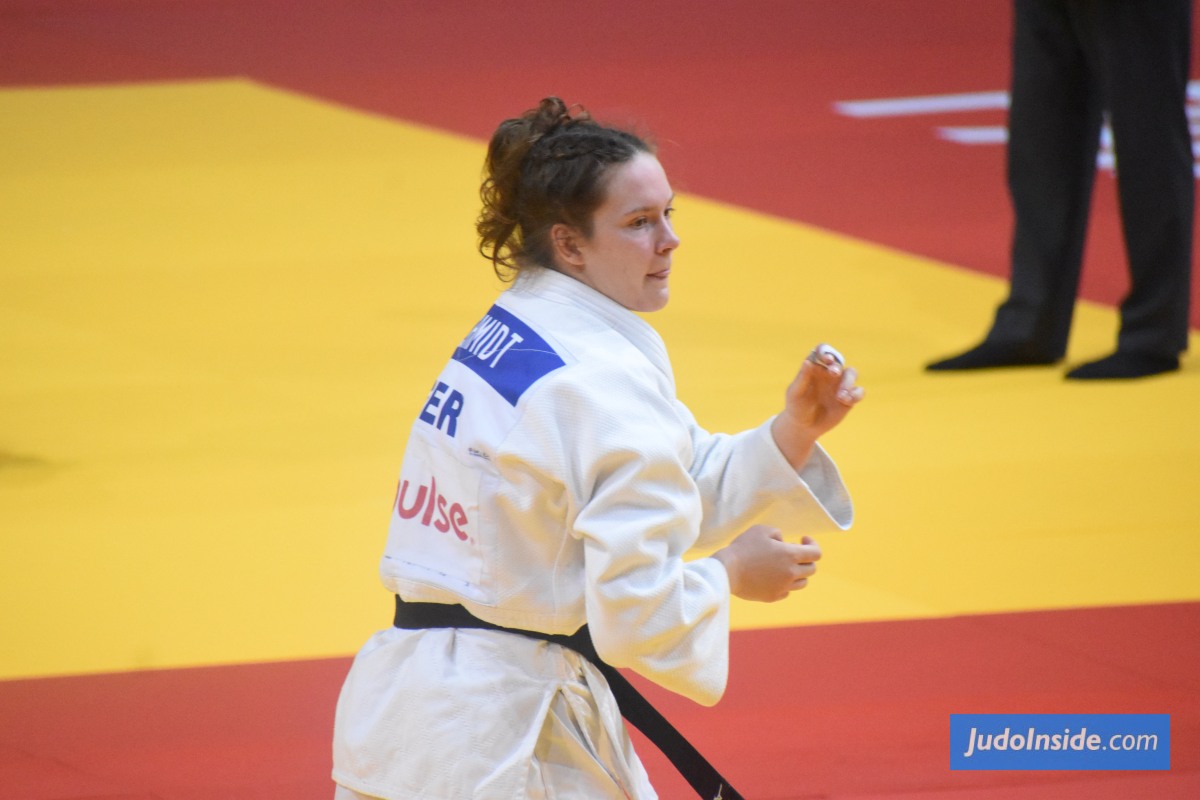Korean Mimi Huh is the boss in Abu Dhabi

 22 Oct 2022 00:25
22 Oct 2022 00:25
 IJF Media team by Pedro Lasuen and JudoInside
IJF Media team by Pedro Lasuen and JudoInside
 JudoInside.com - Hans van Essen / judo news, results and photos
JudoInside.com - Hans van Essen / judo news, results and photos
It doesn’t happen too often that a Korean women wins the Grand Slam, in fact only ten times in history, but five times in the U57kg. Just like in Tbilisi this year it was the Korean rocket Mimi Huh who stunted against Olympic Champion Nora Gjakova in the final to snatch the gold medal in Abu Dhabi.
It was the return of the Kosovar who hadn’t spent a minute in an official contest since her Olympic gold medal. For Gjakova it was about telling the world that she is the boss. For Huh the theme was to show that respect for others does not exist in judo except to bow and that the best are to be defeated. The Korean had analysed Gjakova and showed no weak points but she was not capable of creating danger either. Instead, she embarrassed the Kosovar with penalties and created the first huge upset by scoring waza-ari with three seconds to go, finishing with osae-komi. The one who was discreet during the preliminary phase showed her true face, that of a fearless champion who respects judo by beating the best and who wants people to ask Huh is the boss?
Perisic defeats Cai for bronze
Cai had one last chance to bid farewell to Abu Dhabi with the honours of a medal, but the same was true for Serbian Marica Perisic. What we saw was the Chinese with a tank half empty, as if she had not recovered from the efforts deployed during the preliminary phase. Perisic was more complete and won, eliminating the Chinese.
Liparteliani doesn’t waste time for bronze
Liparteliani was supposed to make mincemeat of the Turkish Olzem Yildiz because the Georgian is better and has long since learned to win in the important moments, when the medal is at hand. Liparteliani needed only 26 seconds to win by ippon and add her sixth grand slam medal to a growing list.
Prelims
The Portuguese Telma Monteiro, whose successful career is more behind than in front, lost at the first exchange against the Chinese Qi Cai. It was an excellent operation for Cai, because in the second round another hard nut to crack was expected, the Ukrainian Daria Bilodid. It was a pleasure to see the Chinese in Tashkent and another one to see that they have trained very well and that the return to the circuit is to win. Cai stunned the audience and Bilodid herself with an ippon from nowhere, which qualified the Chinese for the quarter-finals, while Bilodid remained on her knees on the tatami trying to understand what had just happened. The second item was the return of the Olympic champion Nora Gjakova, who we wanted to watch. The Kosovar faced the Korean Yuna Shin. From the looks of it, Gjakova was still just as powerful physically and didn't seem to suffer from the lack of competition. Perhaps the most visible thing was the absence of that killer instinct that would have made her finish off the victory in a few seconds, but in return she used the experience to win by eliminating her young opponent, which did not detract. It was just an impression though, because in her second match she reverted to her traditional feelings and swept away the Dutch Cornelisse with flawless ne-waza. More disappointments, more unsuccessful falls by the favourites, in this case the French Priscilla Gneto, third seed, who was defeated by the Brazilian Pereira. If any athlete thought it would be a quiet and monotonous morning, they were totally wrong.
Well, not quite, because the Georgian Eteri Liparteliani had not yet shown her nose. The first seed easily defeated the Italian Giulia Caggiano, defying the course of the competition and we like that, we like independent athletes who defy the rules of nature or what is fashionable. Liparteliani knew that, if things did not go wrong, her greatest concern would be at the height of a semi-final against Gjakova and the Georgian was right because the Olympic champion is like those people who do not like to get up early and the greatest danger for them is to blow up in the first round because by the next round they are already hot. Gjakova was no longer the same as she was at 10am and comfortably outplayed Liparteliani, a waza-ari scored and good management of the lead. It was a first competition back on the World Judo Tour and a first final; it was worth the wait to see the Kosovar again.
Let's go back to Cai and her excellent campaign, which ended in the semi-finals against the Korean Mimi Huh, very discreet in the preliminaries because she did what was necessary to win but without showing off her best judo. She was going to need it in front of Gjakova.
Mimi Huh is the third Korean woman to win a Grand Slam, she had won in Tbilisi and follows up Jan di Kim who won in Abu Dhabi in 2015. You Jeong Kwon is the other Korean who won (in Paris) a Grand Slam.
 like
like
 share
share
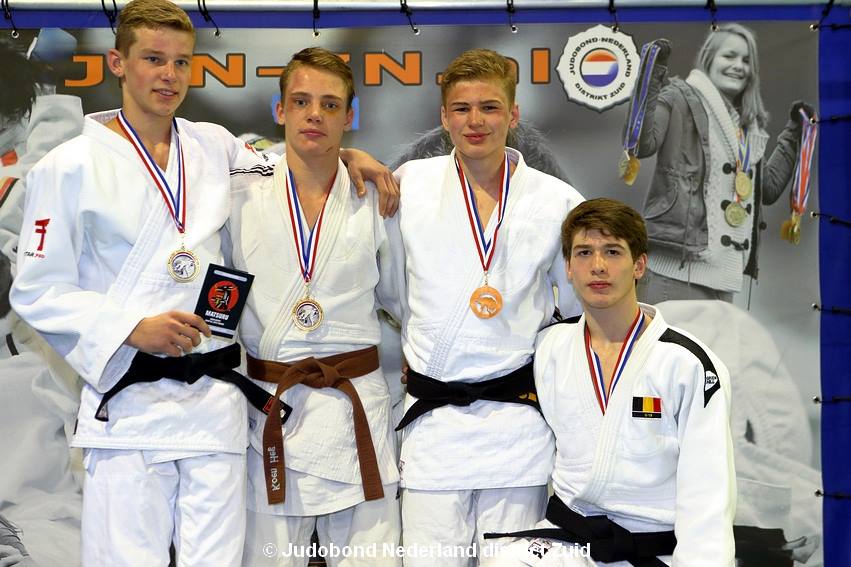
| Result | City | Date |
|---|---|---|
| 2 | Paris | 30 Jul |
| 1 | Abu Dhabi | 21 May |
| 1 | Zagreb | 26 Apr |
| 3 | Belgrade | 2023 |
| 2 | Montpellier | 2023 |

